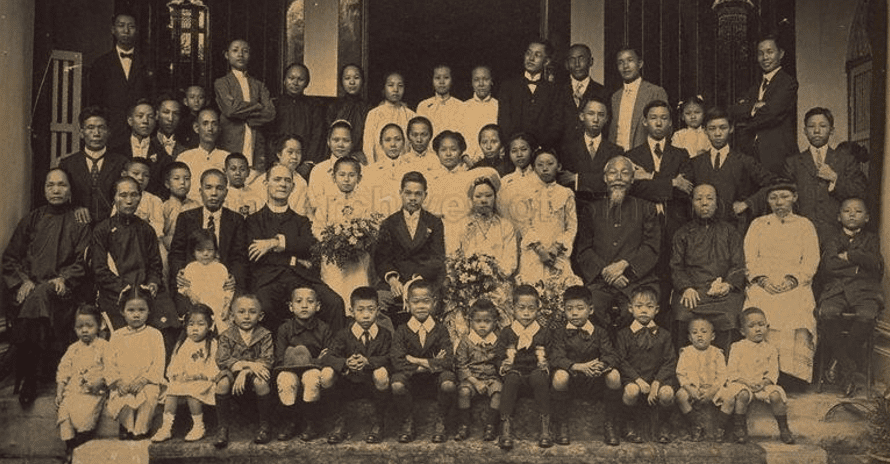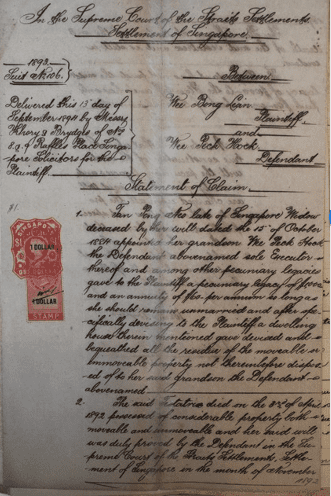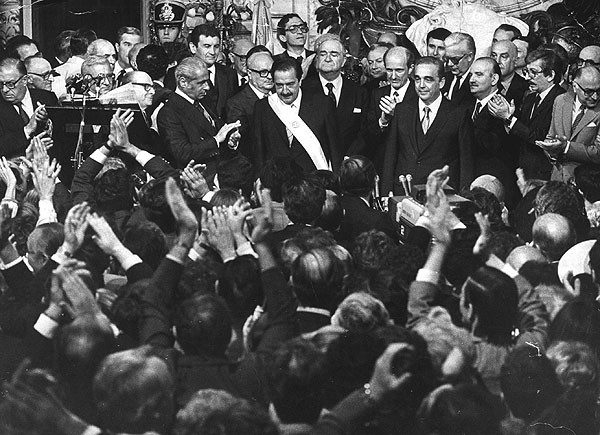
Not Even Past is delighted to congratulate Sandy Chang and Gabrielle Esparza,the winners of the 2021 Lathrop and Perry prizes. The awards are for the best PhD dissertation (Lathrop) and MA thesis (Perry) in History at the University of Texas at Austin.
Lathrop Prize: Sandy Chang, “Across the South Seas: Gender, Intimacy, and Chinese Migration to British Malaya, 1877-1940“
Supervisor: Philippa Levine
Perry Prize: Gabrielle Esparza, “The Politics of Human Rights Prosecutions: Civil Military Relations during the Alfonsín Presidency, 1983-1989″
Supervisor: Jonathan Brown
For more on this groundbreaking research, see below:
Across the South Seas: Gender, Intimacy, and Chinese Migration to British Malaya, 1877-1939 (Sandy Chang)

Across the South Seas investigates how gender and sexuality shaped Chinese migration and settlement in British Malaya during Asia’s mobility revolution. Based on immigration records, court cases, trafficking files, and oral interviews, it traces the border-crossing journeys of over a million Chinese women and girls, who traveled as wives, domestic servants, and prostitutes. Although scholars have often argued that global Chinese migration was, historically, a predominantly masculine enterprise, this dissertation illuminates instead how women’s intimate labor networks served as linchpins that sustained the colonial Southeast Asian economy. From makeshift brothels in the tin-mining hinterlands to polygamous households in the port cities, migrant women engaged in adaptive labor strategies and intimate relations across the Malay Peninsula. By attending to the sexual, emotional, reproductive, and care work itinerant women provided, the study revises conventional histories of Chinese migration that have overlooked how women’s “invisible” labor knitted together transregional immigrant communities.

This dissertation weaves together the social history of migrant women with the politics of global border control. It argues that colonial anxieties about gender demographics, sexual economy, and the racial boundaries of “Chinese-ness” rendered Chinese women the primary targets of an emergent immigration regime. As such, they disproportionately bore the burden of new techniques of documentary control and surveillance at the border and beyond, as the colonial state simultaneously promoted their settlement and circumscribed their intimate relations and labor practices. While scholars of Asian American studies typically examine immigration through the transnational racial politics of Chinese exclusion, my work emphasizes how the logic of facilitation underpinned the British colonial immigration regime. Migration governance in British Malaya was, from the start, a gendered and sexual project aimed at managing prostitution, promoting marriage, and importing domestic laborers. This study contributes to the history of empires and Asian diasporas by showing how Chinese women’s mobility ultimately shaped the making of colonial borders in Southeast Asia.
The Politics of Human Rights Prosecutions: Civil Military Relations during the Alfonsín Presidency, 1983-1989 (Gabrielle Esparza)
The Politics of Human Rights Prosecutions examines the evolution of President Raúl Alfonsín’s human rights policies from his candidacy to his presidency. Alfonsín’s election in 1983 followed Argentina’s most repressive dictatorship and marked the country’s return to democracy. This democratic transition occurred at the beginning of a wave of similar shifts from military to civilian rule throughout Latin America. As a result, the Argentine experience heavily influenced the transitional justice scholarship that emerged in the 1990s. Argentina pioneered new methods of addressing state sponsored human rights violations during Alfonsín’s administration. Never Again, the first published truth commission report became an international model, and more than thirty countries have followed Argentina’s example since 1983.

Alfonsín also ordered criminal prosecution of military generals for human rights violations. The trials respected legal codes and due process in order to demonstrate the law’s ability to address wrongdoing. Such efforts helped reestablish trust in judicial processes. These mechanisms applied early in Alfonsín’s term revolutionized the field of transitional justice, but the later years of his presidency limited this initial momentum toward accountability through the authorization of Full Stop and Due Obedience laws. Both measures, dictated under military pressure and insurrection, narrowed the scope of the trials in order to ensure democratic stability. President Alfonsín had dedicated himself to overcoming Argentina’s legacy of authoritarianism and emphasized democratization as the main goal of the country’s transition. No president had completed his or her mandate against the wishes of the armed forces since 1928. In light of these political realities, Alfonsín made prudent decisions to achieve his legislative goals without undermining democratic processes and institutions. This approach marked a clear break with the past and sought to model democratic governance. Alfonsín’s methods also demonstrated that democracy, even when producing complicated and uneven policy victories, had the power to address social problems.

The views and opinions expressed in this article or video are those of the individual author(s) or presenter(s) and do not necessarily reflect the policy or views of the editors at Not Even Past, the UT Department of History, the University of Texas at Austin, or the UT System Board of Regents. Not Even Past is an online public history magazine rather than a peer-reviewed academic journal. While we make efforts to ensure that factual information in articles was obtained from reliable sources, Not Even Past is not responsible for any errors or omissions.





